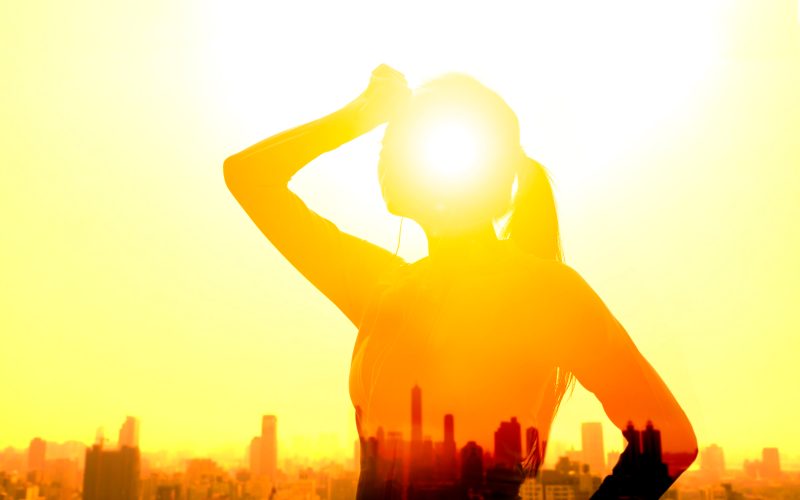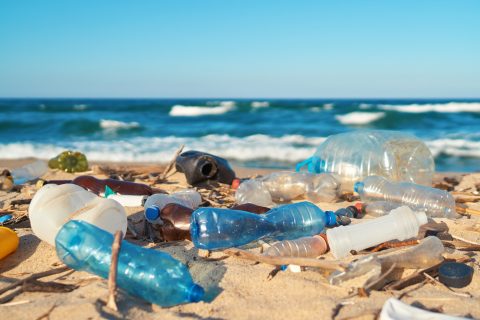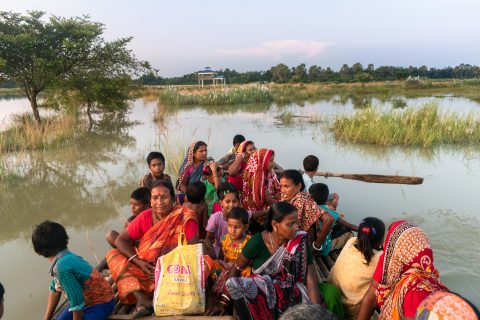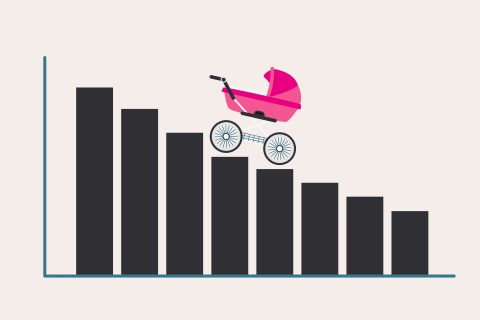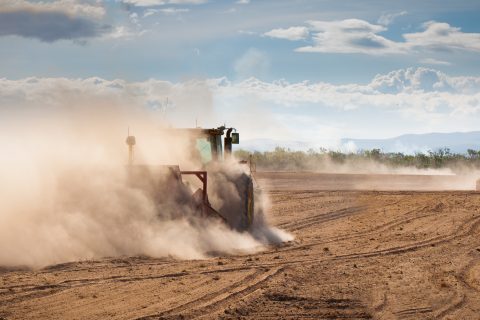We regularly hear about how climate change affects the ecosystem, but we rarely hear about how it affects human bodies. Jeff Goodell is an author and senior fellow at Atlantic Council, and he joins host Krys Boyd to discuss why increasing heatwaves kill the most vulnerable and how they will affect food supplies and water resources – even disease outbreaks. His book is “The Heat Will Kill You First: Life and Death on a Scorched Planet.”
This show originally aired September 2023.
Being hydrated doesn’t make you invincible
By Shaunessy Renker, Think Intern
Americans have suffered relentless triple-digit temperatures for weeks this summer across much of the Southwest. As global temperatures rise and the isolated climate events become more consistent, is summer something we will still look forward to in 10- or 20-years’ time?
Jeff Goodell’s take is that “as our planet warms up and as summers get more and more brutal, the whole idea of summer changes.”
In the media, we see reports of catastrophic events such as the wildfires in parts of California and Maui and hurricanes ravaging the Gulf. The effects of these isolated natural disasters on humans as a collective are insurmountable. But how is the individual affected by climate change? This is what Goodell brings to light in his book, The Heat Will Kill You First.
He says, “The climate that we all grew up in, that we came to think of as the way the world works, is gone and we’re living in a new climate now.”
In his book, Goodell debunks myths about dehydration and emphasizes that “being hydrated is no guarantee that you will not have a heat stroke.”
It is entirely possible to be perfectly hydrated and still succumb to heat stroke. So, it remains important to carry plenty of water when we’re exercising and hiking, but that is no guarantee that the heat will not get to you. Often, it is the conditions in which people are spending time in the heat that determines whether they could get heat stroke or not. For example, exposure to direct sunlight for extended periods of time, doing strenuous exercise in the heat, and being in urban spaces that magnify the heat can have dire effects.
“A lot of people tend to think that drinking water cools us off, that the act of drink water itself is some kind of refrigerant for our bodies,” he says. “But in fact, what drinking water does, –and the reason it’s important– is that our cooling mechanism is sweat. If we don’t have enough water in our system, if we become dehydrated, then we can’t sweat anymore and we can’t cool off.”
In instances where people suffer from heat stroke and their situation while hiking or exercising outside goes awry, they may have overheated faster than they could sweat. Goodell explains, “your body can accumulate heat much faster than you can dissipate it by sweat. For this reason, it’s really important to drink water and be hydrated in the heat.”

